Oracle PL/SQL Best Practices. 2nd Edition Steven Feuerstein
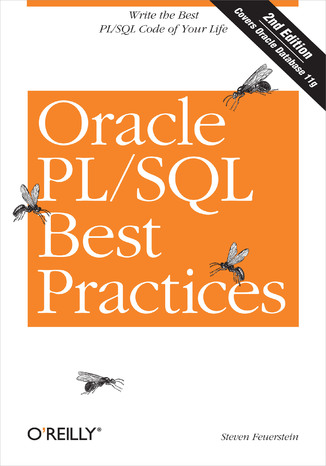

- Autor:
- Steven Feuerstein
- Wydawnictwo:
- O'Reilly Media
- Ocena:
- Stron:
- 294
- Dostępne formaty:
-
ePubMobi
Opis
książki
:
Oracle PL/SQL Best Practices. 2nd Edition
In this compact book, Steven Feuerstein, widely recognized as one of the world's leading experts on the Oracle PL/SQL language, distills his many years of programming, teaching, and writing about PL/SQL into a set of best practices-recommendations for developing successful applications. Covering the latest Oracle release, Oracle Database 11gR2, Feuerstein has rewritten this new edition in the style of his bestselling Oracle PL/SQL Programming. The text is organized in a problem/solution format, and chronicles the programming exploits of developers at a mythical company called My Flimsy Excuse, Inc., as they write code, make mistakes, and learn from those mistakes-and each other.
This book offers practical answers to some of the hardest questions faced by PL/SQL developers, including:
- What is the best way to write the SQL logic in my application code?
- How should I write my packages so they can be leveraged by my entire team of developers?
- How can I make sure that all my team's programs handle and record errors consistently?
This book is a concise and entertaining guide that PL/SQL developers will turn to again and again as they seek out ways to write higher quality code and more successful applications.
"This book presents ideas that make the difference between a successful project and one that never gets off the ground. It goes beyond just listing a set of rules, and provides realistic scenarios that help the reader understand where the rules come from. This book should be required reading for any team of Oracle database professionals."
--Dwayne King, President, KRIDAN Consulting
Wybrane bestsellery
Steven Feuerstein - pozostałe książki
O'Reilly Media - inne książki
Dzięki opcji "Druk na żądanie" do sprzedaży wracają tytuły Grupy Helion, które cieszyły sie dużym zainteresowaniem, a których nakład został wyprzedany.
Dla naszych Czytelników wydrukowaliśmy dodatkową pulę egzemplarzy w technice druku cyfrowego.
Co powinieneś wiedzieć o usłudze "Druk na żądanie":
- usługa obejmuje tylko widoczną poniżej listę tytułów, którą na bieżąco aktualizujemy;
- cena książki może być wyższa od początkowej ceny detalicznej, co jest spowodowane kosztami druku cyfrowego (wyższymi niż koszty tradycyjnego druku offsetowego). Obowiązująca cena jest zawsze podawana na stronie WWW książki;
- zawartość książki wraz z dodatkami (płyta CD, DVD) odpowiada jej pierwotnemu wydaniu i jest w pełni komplementarna;
- usługa nie obejmuje książek w kolorze.
Masz pytanie o konkretny tytuł? Napisz do nas: sklep@ebookpoint.pl
Książka drukowana




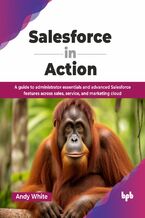
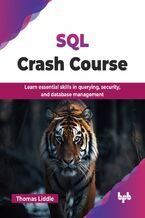
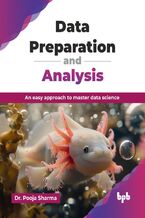
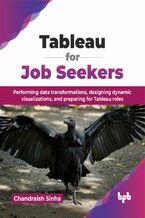
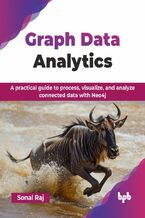
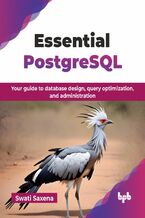
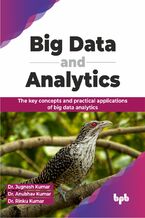
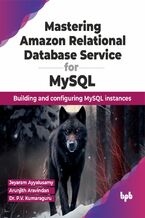
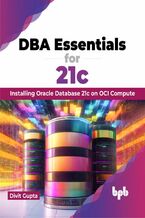
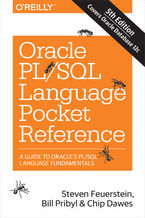
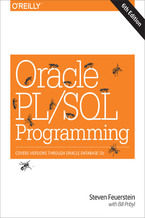

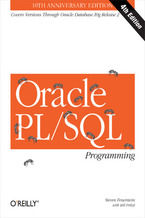
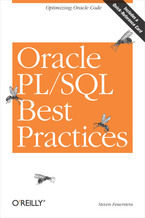
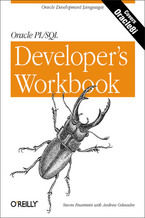
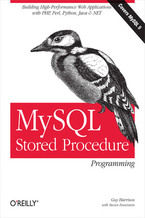






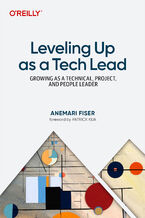
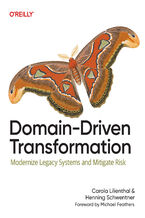
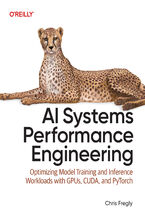

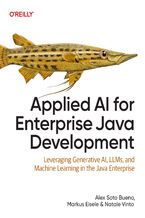
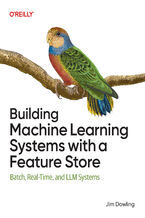
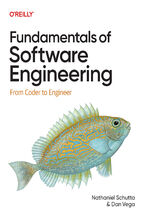
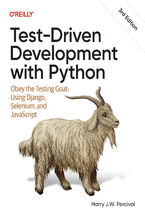
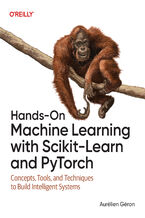
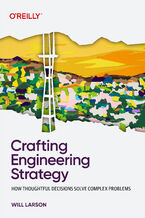
Oceny i opinie klientów: Oracle PL/SQL Best Practices. 2nd Edition Steven Feuerstein
(0)